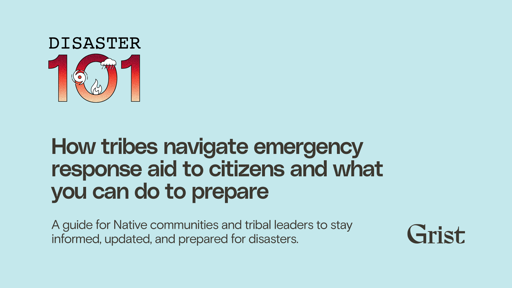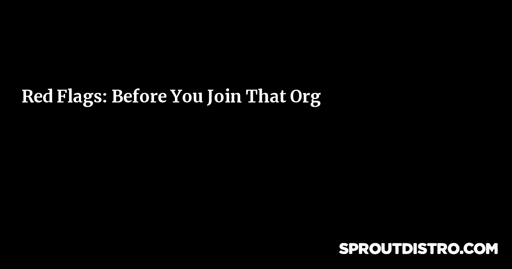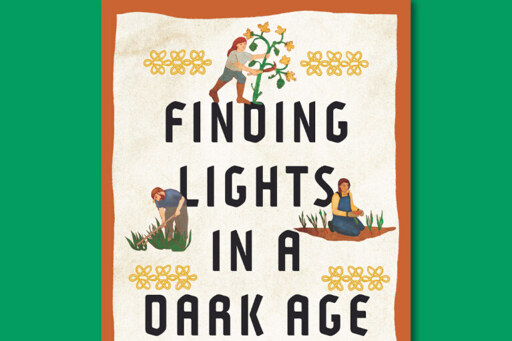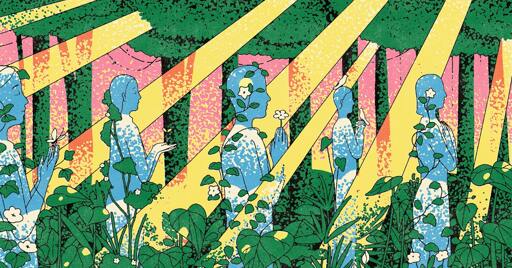- 426 Posts
- 500 Comments

 5·9 days ago
5·9 days agoNaaah. That’s typical anarcho-capitalist/Republican crap - we have to do (insert bad thing here) because of those eeeeevil laws and those eeeeevil lawyers, and if we didn’t have laws and lawyers, we could just do the right thing without fear of lawsuits!
Bull fucking shit.
There is no more risk of food poisoning from these cookies at the end of the business day then there is at the beginning of the business day when they went out for sale.
Management isn’t throwing those cookies away from fear of food poisoning.
They’re throwing those cookies away because they would rather waste food than let people have free cookies.

 9·10 days ago
9·10 days agothen you’d be more principled than most people if you never gave in to the temptation (conscious or subconscious) to make too many.
I would love to see if there are studies about that. Because, frankly, I doubt it.
Capitalists believe that labor will steal from the company whenever possible, because they think labor is morally inferior to capital - after all, if they were good, hardworking, well-educated people, they wouldn’t be working minimum wage food service jobs, right?
American “Christians” believe that poor people are poor because they are more sinful than rich people, so fundie outfits like Jesus Chicken here believe that poor people will steal whenever given the opportunity.
But that’s not actually how human beings work.
The average human being does believe that wasting food is wrong. The average human being does believe that stealing is wrong. The average human being does follow explicit and implicit social norms (like being a good steward of their employer’s resources) without threats of punishment.
And frankly, when employees aren’t good stewards of their employer’s resources, it’s because the employer has been a bad steward of their employees first. Good companies earn the loyalty of their employees. Bad companies get the same treatment they give.
The only way I would be tempted to make more cookies than necessary as a Chick-fil-A worker is if I or my coworkers were paid so little that we were literally going hungry - because if Chick-fil-A pays so badly that it’s workers don’t have enough to eat, fuck em.
I mean, it sounds like you’re thinking “if I was an employee I would be tempted to make extra cookies for myself”. Which is sure, reasonable, cookies are yummy. But would you actually do it? Or would there be other considerations, like moral (stealing is wrong) or practical (this franchise isn’t making very much profit, and if it closes I lose my job) that would outweigh the desire for a short-term cookie benefit?
And if you were working at some place that wasn’t a shitty employee destroying fast food chain, someplace that you wanted to see do well - like a bakery where you knew and liked the owner, and where the owner treated you and the other employees fairly - how much stronger would those other considerations be?
The idea that I would be tempted to steal or waste resources just because I had the opportunity, so I might as well? No. That’s capitalist logic - if you see an opportunity for profit, you take it, whether you need it or not, whether it’s morally right or not. But actual human beings have values beyond profit maximization.

Climate change is the acceptable price of modernity. That, in a nutshell, is the conclusion that Energy Secretary Chris Wright reaches in his recent essay in The Economist, a composition representing the studied fatalism increasingly found in the debate on energy transition.
Tldr: we’re going to accelerate climate change, and there’s nothing you can do about it.
I suspect Republican politicians and American fossil fuel companies got together, looked at the real studies, and realized climate change will hurt North America much less than it will the rest of the world.
So they put a plan together: seal the borders, move manufacturing back to the US, seize Canada and Greenland, and prepare for the United States to dominate the world as less well-positioned nations collapse from climate disaster.
And the more fossil fuels we burn, the faster the climate collapses, and the closer America comes to global dominion.
It’s not fatalism. It’s manifest destiny.

 11·13 days ago
11·13 days agodeleted by creator

 2·13 days ago
2·13 days agoSure. Fascism, at its core, is just a fancy 20th century version of the age-old human instinct to respond to problems with violence. And we all have to watch out for that instinct. Progressives are human too.

 8·14 days ago
8·14 days agoFascists typically believe in strongman leadership, but you don’t have to swear allegiance to a specific strongman to be a fascist.
Eco-fascists, in particular, want a Pol Pot-style dictator, someone who will ignore laws, human rights, and common decency, in order to drastically reduce the human population and force the survivors into low-tech subsistence farming. Last I checked, no one like that is anywhere near power anywhere in the world, but that doesn’t make eco-fascists any less fascist for it.

In general, the problem with that narrative is that Trump was openly promising to act in ways which were guaranteed (and in fact have) raise prices and take away healthcare from people, while transferring money from the pockets of the less wealthy into those of billionaires.
Yes. And. Do you think the average American voter was economically literate enough to know that? Or did they just buy the propaganda that Trump economic policies would leave them better off?
A lot of the Fox News propagandists and conservative talking heads are, absolutely, vicious racists. Or they understand the racial impact of the policies they shill for but don’t care, which is just as bad.
But frankly? If you think the average American voter knew Trump’s policies would hurt the economy and chose to vote for him anyway because they’d rather be racist than prosperous? I think you are overestimating the average voter’s intelligence.
And, for that matter, underestimating their selfishness.

I can’t say she’s wrong.
Let’s not forget: one of the big reasons Trump won was because the Biden economy was shit, and Biden and Harris refused to even admit it, much less offer any solutions.
And one of the big reasons Mamdani won was clear specific policies to help New Yorkers economically.
Because you can argue principle all you like, but principle is a luxury of the wealthy. It’s hard to get people to support animal rights when they can’t afford food, or convince them to support refugees and foreign workers when their own jobs aren’t secure, or convince them to support electric vehicles when they can’t afford to replace their 20-year-old Honda and gas is getting more expensive every day.
I guess every generation of Democrats has to relearn Clinton’s maxim.
This search for new industries is a strategic one that plays on their unique characteristics. Their large families provide abundant labor that can be channeled towards certain enterprises. This allows the Amish to be particularly competitive in growing produce, a sector where much labor is still done by human hands.
Well, that’s a nice polite way to say “Amish farms rely on child labor”.
And as much as conservatives would love to see America’s kids working in the fields instead of woke liberal crap like (checks notes) graduating high school, I have to decline.
As much as I dislike modern industrial agriculture, pre-industrial agriculture was literally backbreaking work, brutal on both humans and their animal tools. I want to see solar powered farms, not muscle powered farms.
And while Amish communities have strong community bonds and support networks, which I wish more American communities had, those networks are facilitated by
being a fucking culta commitment to enforced ideological conformity that a functional multicultural society cannot and should not replicate.

 5·17 days ago
5·17 days agoThis comment has a super rough scaling algorithm, and using it I’d eyeball the grain patches at 20x50 ft each, so 2000 sq ft or about 185 square meters, which, if the grain was wheat, would make between 185 and 740 loaves depending on yield.
Which is frankly more than I expected, though given how much effort it takes to process wheat into bread flour, I’d go with corn or potatoes 100%.

 14·18 days ago
14·18 days agoThank you for that video - it gave me a few interesting articles and a new book for my reading list 😁
And one of the points in that video is there’s a huge difference in the carbon footprints of different types of urban agriculture - actual urban farms make efficient use of resources, whereas home gardens and community gardens don’t.
And even then, those urban farms are not “self sufficient” the way prepper fantasies like this meme promise - they rely on external inputs like fertilizer and building material and irrigation.
Which is, yeah. I love competently designed urban farms. I love competently designed home gardens. The image in my post is neither.
The image in my post is selling a rugged individualist, manifest destiny, pioneers breaking sod in the prairie image of homesteading - the lone smallholder supporting himself and his family solely through the production of his land - which has rarely been true and, when it was, really sucked for the people stuck doing it.
Small scale farming is viable. Rugged individualism is crap.

 43·18 days ago
43·18 days agoI love that book!
The interesting thing about Seymour’s one acre compared to the prepper fantasy in the meme is that he doesn’t try to pretend an acre is “self sufficient”. He optimizes the space for crops that make a big difference to his quality of life - fresh vegetables take up almost half his diagram, for example - instead of putting in a few tiny plots of grain and a duck pond. He has a cow in the same space as the meme does but notes he’ll have to buy fodder for it because that’s not enough land to feed a cow - but he’s cool with that because fresh milk is so important to him…
The difference between an actual farmer and an online bullshitter, I guess.

 3·18 days ago
3·18 days agoYou want the government to control all the means of production and the distribution of wealth, and be able to dictate the prices of goods and services and wages?


 49·18 days ago
49·18 days agoYes, and that’s why, even in brutal hypercapitalist America, we fucking regulate the free market.
And why we should abolish the free market in the long run, for that matter.
Because having the “freedom” to buy poisonous adulterated foodstuffs, if you’re too poor to buy real good food, is like having the “freedom” to accept sub-minimum wages if you’re desperate enough for money. Not freedom, but exploitation.

 31·18 days ago
31·18 days ago10% sawdust before people notice sounds pretty fucking high to me :/
And while the hyper-violent “rivers of blood” framing may be useful for some - I thoroughly refuse the “sad” positioning as I’d much rather build toward happiness in the ideal of “If I can’t dance, I don’t want to be part of your revolution”
I’m reminded of the old saying from the days of the AIDS crisis, when Reagan decided HIV was God’s solution to homosexuality and researching a cure went against His will - bury your friends in the morning, protest in the afternoon, and dance all night.
Which does kind of put things into perspective.
And as to the OP’s article - I got to the part where it said “Solidarity is a learned behavior” and was like, okay, yes, this is what prefigurative politics is for. You go out and do stuff together so you can learn to do stuff together so you can do bigger and more important stuff together.
But the article seems to use “prefigurative” to refer to slacktivism and online shitposting and political discussion that serves as virtue signaling rather than a goad to concrete action and so on.
Edit: I do think the article makes half of a good point. If we want to make a change we have to put in the work, go out, work with people, get our hands dirty. I’m not so sure about the sadness and the rivers of blood. I suspect that’s counterproductive.

 8·21 days ago
8·21 days agoThis kind of feels like a solution in search of a problem.
I mean, it’s neat that it’s possible to wirelessly charge a bicycle through its kickstand, but I don’t see many people being willing to pay $300 for it.

















deleted by creator